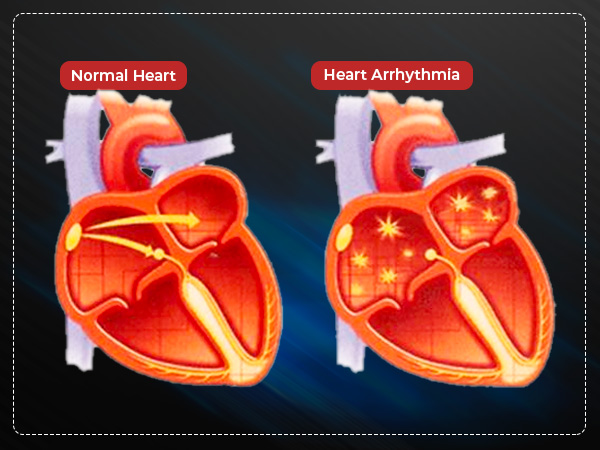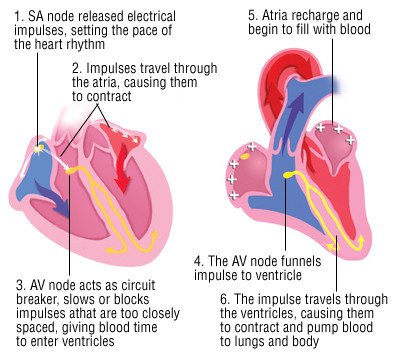
Heart rhythm disorders are a common cause of sudden cardiac death. There are a number of different types of arrhythmias. An electrocardiogram (ECG) is the most effective method for diagnosing arrhythmia. It is a continuous test, and some people are asked to wear an ECG monitor for up to 14 days. The resulting electrocardiogram will be used to diagnose and treat your heart rhythm problem.
The most common type of arrhythmia is ventricular fibrillation, which causes the heart to beat irregularly. This condition can cause the heart to beat too fast, too slow, or too slowly. During a physical exam, your doctor will listen to your heart to determine if your heartbeat is unusual. The doctor will also order diagnostic tests to rule out other causes of irregularities. Some people are more prone to certain kinds of arrhythmias than others.
In most cases, an arrhythmia can be treated with medications. Medications can help control symptoms and reduce the risk of a heart attack. Other treatments include surgery or lifestyle changes. Medications are often recommended for patients with arrhythmia. Although surgery is the last resort, it is the best option for most people. When a cardiac arrest does occur, doctors will use drugs to prevent the symptoms and avoid the risk of a heart attack.
The most common arrhythmias are ventricular fibrillation and atrial flutter. These are the most common types of arrhythmia, and they are the most dangerous. These conditions may be life-threatening. Fortunately, there are many ways to prevent heart rhythm disorders by making lifestyle changes. A healthy lifestyle and regular exercise are essential to maintaining a good heart rhythm. You can start by getting your heart rate checked. It is very important to have a doctor check it out and get a referral.

There are many different types of arrhythmia. A healthy heart rate will vary from day to day. If a person’s heart rate is too fast or too slow, it is a sign of abnormal heart rhythm. The ideal heart rate is between 60 and 100 beats per minute. A fast or slow heartbeat can cause an arrhythmic episode. If you are experiencing irregular heartbeats, your doctor will likely recommend that you get tested.
There are a number of other types of arrhythmia. Irregular heartbeat can affect any part of the heart. In some cases they can even be life-threatening. These conditions most often occur in young children, but can also occur in adults. In most cases, symptoms can last for years. Some people have no symptoms, while others may have a disease that affects the entire cardiopulmonary system. In this case, they should consult a doctor as soon as possible.
Typically, an irregular heartbeat is a sign of a heart problem. In most cases, the heart beats 60–100 times per minute during rest. This is called sinus rhythm. In some cases, during intense exercise, the heart rate can increase to more than 100 times per minute. However, too fast or too slow heart rate is an arrhythmia. Although the condition is not life-threatening, it can lead to other complications.
There are several different types of arrhythmia. The most common type is tachycardia. Irregular heartbeat can cause death or organ damage. Some people can control their symptoms by changing their diet or increasing their activity level. Those suffering from irregular heart rhythms should see a doctor as soon as possible and visit a health website https://handaldok.com. It is important to know the causes of arrhythmia, as they can lead to a number of different complications.
The most common symptoms of arrhythmia are rapid and irregular heartbeats. Symptoms may resemble those of other illnesses, and a healthcare professional should be consulted. For example, a fast heartbeat can lead to a stroke, or a heart rhythm that is too slow. It is important to see a healthcare professional as soon as you suspect that you are suffering from an arrhythmia. These can be very difficult to detect, but if they happen to happen often, it is best to seek treatment immediately.